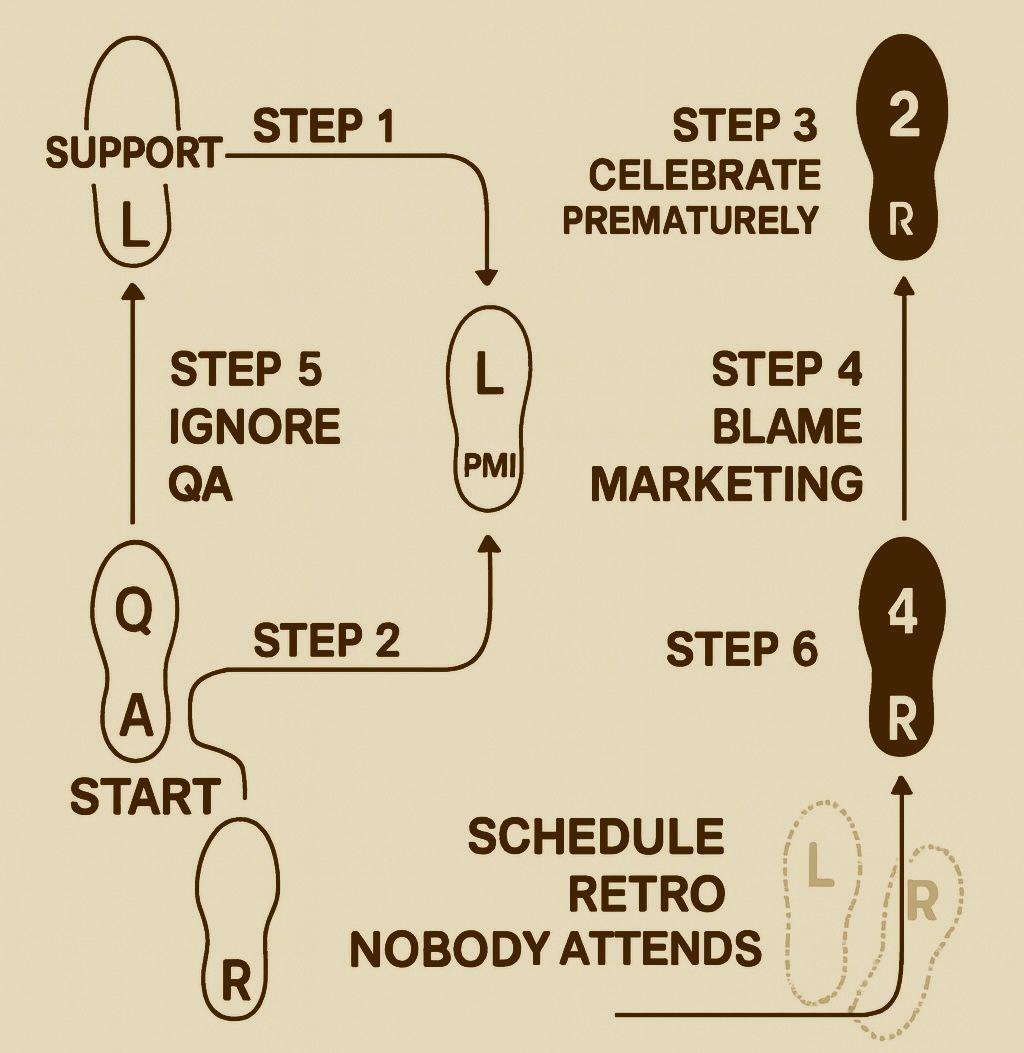
Everyone obsesses over launch dates. Nobody obsesses over launch choreography. That's why most apps land with a pathetic whimper instead of changing anyone's world. Not because the product was bad. Not because marketing failed. Because when crunch time hit, nobody knew who was supposed to do what, and everyone assumed someone else was handling the critical stuff.
Stop Making Useless Checklists. Start Building Actual Countdown Systems.
Your typical launch "plan" is a bloated Google Sheet that three people have edit access to and nobody actually follows. While you're scrambling for final design assets, marketing is hitting "schedule" on campaigns you haven't seen, and you're googling "how long does Apple app review actually take" at 11 PM like a desperate teenager with a school project due tomorrow.
You don't need another damn project management template that'll collect digital dust. You need a countdown system that makes it impossible for critical tasks to slip through the cracks.
Launches Fail When Everyone Thinks Someone Else Is Driving
Engineering thinks Marketing owns the go-live timing. Marketing thinks Product has final approval. Product thinks Engineering locked down the release window. Meanwhile, someone from the exec team is already posting LinkedIn updates like the app is live while your backend is still returning 404 errors.
Result: expensive chaos, missed deadlines, and a launch that feels like damage control instead of a celebration.
Ownership isn't a RACI matrix in a wiki nobody reads. It's one person who can't sleep until everything works and is willing to hunt people down when deliverables are missing. Someone has to give a shit about making this work.
Build a Launch System That Runs Itself
Work backwards from reality, not fantasy
Pick your dream launch date. Now add 3 weeks, because you're delusional. App Store reviews don't care about your roadmap. Apple will reject your first submission for something stupidly small you overlooked. Plan for it or prepare to explain to your boss why the timeline slipped again and why everyone's working their asses off over the weekend.
Create a launch war room, not more documentation
One shared space where every critical task is visible, assigned, and tracked in real time. If it's not in the war room, it doesn't exist. If someone can't update their status in 30 seconds, your system is too complicated and destined for failure. Keep it simple as hell or watch it fall apart.
Rehearse the launch like it's opening night, not a casual meetup
Run a full dress rehearsal one week before go-live using a TestFlight Beta release (that's what it's for, not just for your developers to show their friends). Who submits to app stores? Who flips the analytics switch? Who sends the press release? Find the gaps when you can still fix them, not when executives are breathing down your neck.
Appoint a launch dictator, not a "coordinator"
Not a PM juggling five other projects. Not a developer who's still fixing bugs. A single person whose only job is making sure nothing falls through the cracks. They don't do everything; they just make sure everything gets done or they know exactly whose head to put on a spike. When shit breaks, everyone knows who to call.
Production will break. Metadata will be wrong. Tracking will fail. Have a rollback plan that doesn't require a team meeting to execute while your app is burning down in public. Because when the app crashes at launch, nobody gives a damn about your excuses.
If Your Launch Needs Heroes, It's Not a System
Clean, coordinated launches shouldn't be miraculous events where people sacrifice weekends. They should be inevitable. That only happens when you stop treating launches like special events and start building them like systems that run themselves.
Your next launch doesn't need more features. It needs fewer ways to fail spectacularly. So get your shit together and build a real system.